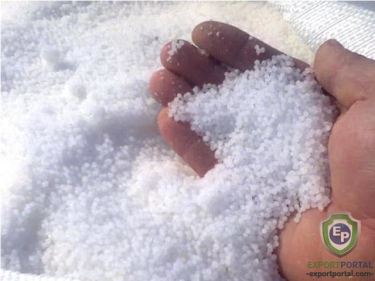Couldn't find the product you want?
Fill out this form to request the product.
Export from Zambia
Zambia is a landlocked country in Southern Africa bordered by eight countries with an estimated population of 14 million people. It has a stable political climate, one of the fastest growing economies in Africa and a strong legal and financial system.
Zambia has 40 per cent of the water resources in the Southern African region and significant potential for the agricultural sector. Currently, only 14 per cent of the land is under cultivation and the Government has resolved to further develop the sector given its key role in promoting growth and alleviating poverty. Over 70 per cent of the food is produced by emerging and subsistence farmers, leaving an ample opportunity for commercial farmers.
Strategically positioned as a food basket for the region, Zambia is within easy access to Southern African Development Community (SADC), Common Market for Eastern and Southern Africa (COMESA) region, European Union and USA markets.
One of the drivers of the agricultural sector is contract farming, where a multinational company act as an off-taker for a group of small farmers to provide them a formal market to dispose of their produce.
There has been an increase in investment especially into the mining sector and infrastructure. The economy is still driven by the copper mining industry for export revenues and employment opportunities. A top priority for the Government is to reach production levels of 1.5 million tonnes of copper production by 2016 from the current 760 000 tonnes.
Zambia's main export, copper accounts for 70 percent of Africa's production and 60 percent of country's total exports. Other exports of Zambia include sugar, tobacco, gemstones, cotton and electricity.
Zambia's main export partner is Switzerland. Others include China, South Africa, United Kingdom, Zimbabwe and Congo.
Import to Zambia
Zambia is one of Sub-Saharan Africa's most highly urbanized countries. About one-half of the country's 11.5 million people are concentrated in a few urban zones strung along the major transportation corridors, while rural areas are under-populated.
The economy of Zambia has historically been based on the copper-mining industry. Today copper mining is central to the economic prospects for Zambia and covers 85% of all the country's exports, but concerns remain that the economy is not diversified enough to cope with a collapse in international copper prices.
The Zambian government is pursuing an economic diversification program to reduce the economy's reliance on the copper industry. This initiative seeks to exploit other components of Zambia's rich resource base by promoting agriculture, tourism, gemstone mining, and hydro-power.
Agriculture plays a very important part in Zambia's economy providing many more jobs than the mining industry.
Zambia main imports are fuel, copper ore, refined petroleum, machinery, delivery trucks, iron structures, stone processing machines and foodstuffs.
Zambia's main import partner is South Africa followed by the Democratic Republic of the Congo, China, Kenya and India.
The body needs a variety of the following 5 nutrients - protein, carbohydrate, fat, vitamins and minerals - from the food we eat to stay healthy and productive. Protein - is needed to build, maintain and repair muscle, blood, skin and bones and other tissues and organs in the body. Carbohydrate - provides the body with its main source of energy. Vitamins and minerals are needed in very small amounts and are sometimes called micronutrients, but are essential for good health. They control many functions and processes in the body, and in the case of minerals also help build body tissue such as bones (calcium) and blood (iron).
Sell food products on Export Portal, build your brand on the biggest eCommerce platform with a large catalog of international goods and amazing service.
Purchase food products on Export Portal, get the products right from the manufacturer, avoiding thousands of retailers and extra payment.
Export Portal is the global market with the good possibility to open a personal store and make the brand visible on the international level. Sell and buy food and agricultural products on the safest internet portal. Find new clients all over the world, make your trade safe and secure.
Customs requirements of Zambia
Zambia Customs Contacts
Website: http://www.zra.org.zm/
E-mail: advice@zra.org.zm
Address: Nchanga House, P.O Box 20454, Kitwe
Telephone: +260227544
The Republic of Zambia is a landlocked country situated in Southern Africa, bordered by the Democratic Republic of the Congo, Tanzania, Malawi, Mozambique, Zimbabwe, Botswana, Namibia, and Angola. Zambia is a member of the African, Caribbean, and Pacific Group of States, Common Market for Eastern and Southern Africa (COMESA), International Monetary Fund, World Customs Organization, World Trade Organization (WTO) and other international organizations.
Tariffs
Zambia applies tariffs on the Cost, Insurance and Freight (CIF) basis. Customs duties are calculated on the basis of the dutiable value, based on the WTO agreement on Customs Valuation. Most tariffs are ad valorem, but a few specifics remain:
- all imported finished products are rated at 25%
- imported immediate are rated at 15%
- raw materials and capital goods are rated at 0-5 %
Export documents:
- Bill of lading
- Certificate of origin
- Commercial invoice
- Customs Export Declaration (CE20 Form)
- EUR 1 - Certificate of origin
- Road manifest
- Transit entry documents (South Africa & Zimbabwe)
Import documents:
- Bill of lading
- Commercial invoice
- Customs Import Declaration (CE 20 Declaration)
- Packing list
- Proof of payment of customs fees and duties
- Release order
- Road manifest
- Transit documents
Export prohibitions apply to certain types of logs under international agreements, and occasionally for grains (during drought years). There are no general export licensing requirements (except for prescribed goods) although certain goods, such as fertilizers, live animals, gemstones, and firearms, require special export permits.
Sources:
http://www.wipo.int/wipolex/en/text.jsp?file_id=209588
http://www.doingbusiness.org/data/exploreeconomies/zambia/trading-across-borders/
